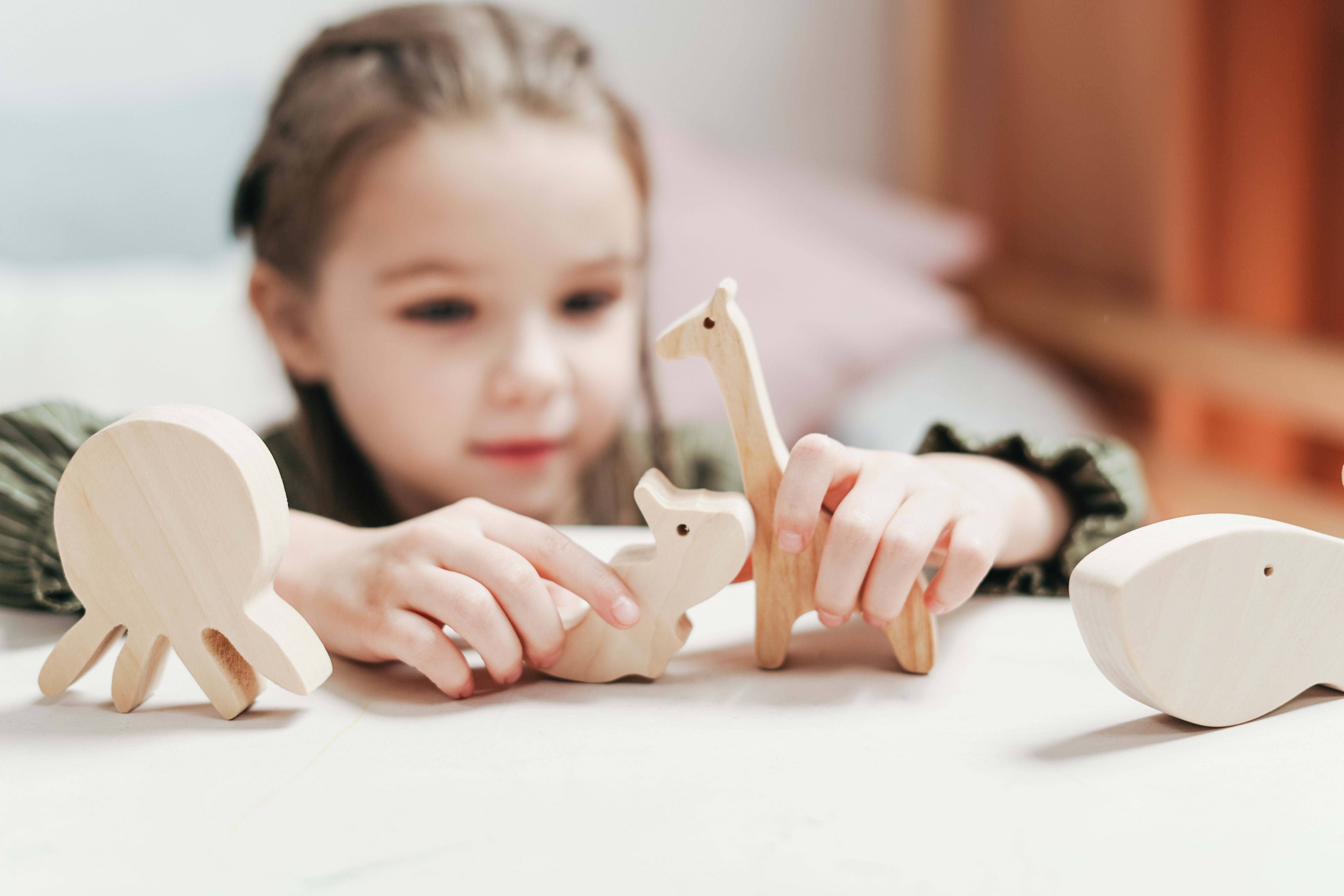Play therapy: Communicating with children in the language they speak

By Becca Hotchkiss, LICSW • JFCS Counselor
“Birds fly, fish swim, and children play”– Garry Landreth
I love this quote by Landreth, founder of the largest play therapy training center in the world, the Center for Play Therapy at the University of North Texas. Most people think of therapy as talking, as that is the way we as adults communicate. But what happens when a child is experiencing anxiety or trauma and needs the support of a therapist? We engage them in the language they speak – play!
Play therapy is the most developmentally appropriate and evidence-based mental health intervention for children. Nevertheless, parents may wonder what it means when I take their child back to the JFCS playroom for 45-50 minutes of therapy.

My main role as a play therapist is to create a therapeutic relationship with your child to allow them to do the healing they need. While there are times when I might be more direct, such as asking a child to play a specific game to build a skill, in general I engage children in child-centered play therapy. It is built on the belief that children are capable of directing their own healing and that the relationship between therapist and child is the main agent of change.
What does that mean? I focus on creating a relationship and a space in the playroom that allows the child to feel safe enough to explore the feelings and situations that may seem scary. I allow the child to be in control of what we do (within the bounds of safety, of course) so they learn they can express whatever they need to in this room. If they need to make a huge mess because their life is feeling like a big mess, they can do that and I will accept and join them in what it feels like to be in it.
According to Landreth: “Once children’s feelings have been openly expressed and accepted, they lose their intensity and can more easily be controlled appropriately. As children learn to responsibly control their feelings, they are no longer controlled by those feelings.” (“Play therapy: The art of the relationship”) The freedom within the playroom also teaches children to be creative and resourceful in finding solutions to their problems.
Lastly, as they experience being accepted by the play therapist as the children they are, they learn that they are worthwhile. Children who have completed play therapy are able to process their experiences, learn new ways of approaching situations, and gain greater trust in their own abilities to manage feelings and situations that previously felt difficult. It is a privilege to enter into the worlds of children and walk beside them as they discover their strength and resilience.
Play therapy can be beneficial for people of all ages, but is especially useful for children ages 3-11. It can help kids struggling with a variety of issues – including anxiety, anger, depression, bullying, divorce, or grief – find a place to process and move forward. If you’re interested in pursuing play therapy for your child at JFCS, please call 952-546-0616.
Becca is a Licensed Independent Clinical Social Worker and has experience working with people across their lifespan – from working with toddlers in early childhood therapy and preschool day treatment, to school-age children and teens impacted by foster care, and supporting adults in navigating the anxiety and challenge that comes with life changes. Click here to read more on Becca.
